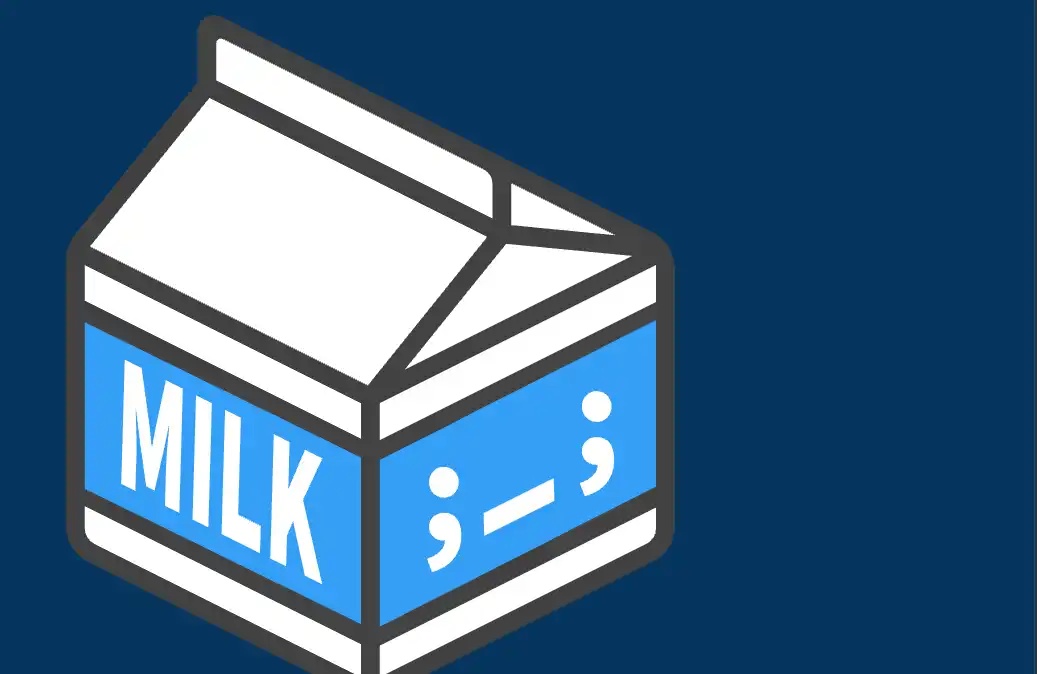Web3 browser: Essential tool for the decentralized world.
Original Title: "Web3 Browser: A Must-Have Tool for Decentralized World"
Original Author: Alan, WebX Lab
Web service software programs enable communication between computers over the internet, typically in the form of application programming interfaces (APIs). In a sense, the Web is a collection of related hypertext materials that can be accessed online. For example, users can browse multimedia web pages using a web browser and navigate between them using hyperlinks.

Web3 refers to the multiple evolutions of web interactions and usage along various paths, including the creation of geospatial networks, the use of artificial intelligence tools, and the provision of content through many non-browser applications or Web3 browsers, allowing users to read, write, and own digital assets.
Web3 browsers introduce users to a new world of decentralized applications (DApps) and digital economies, allowing users to access DApps and integrate cryptocurrencies through decentralized networks, providing greater privacy and security.
Web3 Browser Features
Distributed ledgers, artificial intelligence, and metaverse technologies, among other Web3 technologies, aim to create the next generation of the internet that is accessible to everyone, and Web3 browsers can help users interact with decentralized applications based on blockchain technology.
The key features of Web3 browsers include:
Immutable ecosystem (meaning users will download and trust the digital product according to the original creator's digital rules); enhanced transparency and security; faster browsing performance; enhanced user anonymity and confidentiality; integration of cryptocurrency wallets in a multi-chain form; decentralized content management.
In addition, search engines can find automatically tagged microsymbolic text in Web3, converting countless macro content from Web1 into micro content. Since the tagging can to some extent eliminate the uncertainty introduced by conceptualization and synonymy in the search process, the final result may be a more accurate search.
The core concept of Web3 is to eliminate the control of traditional centralized institutions over users by leveraging cryptography and public blockchains, and to return control to users from the hands of enterprises.
Although Web3 browsers currently mostly replicate the functionality provided by Web2 browsers, the biggest difference between them is that Web3 browsers open up a world of digital economy and decentralized applications for users. They allow users to use the browser's general functionality while also ensuring that user data is not controlled or abused by corporations.
Accessing Web3
Although traditional web browsers can also handle Web3 applications without the need for KYC or AML procedures, users still need to use additional extensions to truly enter Web3. For example, Firefox, Safari, and Chrome are all Web2 browsers, but you must install wallet plugins such as MetaMask to connect smoothly to DApps on Ethereum; if you want to use applications on the Solana chain, you need to use another wallet like Phantom.
However, using various encryption wallet plugins in traditional web browsers poses problems such as complicated operations and security risks. To address these issues, users can choose a suitable Web3 browser and improve their online experience through its standard features.
Web3 browsers are essentially decentralized applications that allow users to retain ownership of their data and share their income. In addition, users can also earn financial rewards through content interaction or by viewing curated ads on decentralized social media platforms and Web3 browsers.
Due to the gradual shift towards a decentralized world for many online payment services, applications, and websites, various Web3 browsers are beginning to emerge. These browsers aim to create a better Web3 experience through embedded wallets and support for Web3 domains.
Brave Web3 Browser
According to 2022 data, Brave has over 50 million monthly active users and is currently the most popular and feature-rich Web3 browser. Like the commonly used Google Chrome and Edge browsers on the market, Brave is a web browser based on the Chromium architecture, making it easy for users to operate. Because Brave browser blocks trackers and ads by default, it not only loads faster but also protects user privacy.

As an open-source software, Brave can provide privacy protection features and a free-to-use business model. Brave enhances users' applications through free video calls, completely autonomous searches, offline playlists, and even personalized news summaries. In addition, the NFT exhibition hall function also provides users with a simplified interface for viewing and managing NFT collections.
Another noteworthy feature of the Brave browser is its integration with IPFS, which enables built-in decentralized file storage and reduces the centralization of data by distributing file storage across the global network.
Opera Web3 Browser
Opera's encrypted browser has features such as preventing phishing, secure clipboard, malicious address checker, and wallet selector. It is also the first multi-wallet management tool in the industry. All users interested in the encryption industry and proficient in blockchain can enjoy Opera's seamless, private, and secure Web3 experience.
Opera browser is designed to seamlessly interact with Web3 DApps and various wallets. With the wallet selector, users can easily switch between Opera wallet and wallet extensions such as MetaMask, and explore more Web3 content in the dedicated DApp store.
Opera has a built-in multi-chain non-custodial wallet, allowing users to access their cryptocurrencies and NFTs and log in to DApps without installing any extensions. The built-in crypto wallet in Opera supports ETH, ERC-20, and ERC-721 tokens, as well as Bitcoin, Solana, and various public chains and Layer 2 solutions compatible with EVM. Users can directly buy, sell, exchange, or send tokens in the Opera wallet.

In addition, users can quickly access social applications such as WhatsApp, Telegram, Discord, Twitter, etc. in the desktop encryption browser sidebar to stay connected with the community. Users can access airdrops, industry updates and event schedules, gas fees, operation tutorials, and other practical content related to the encryption industry through the "Encryption Corner" function.
To use the Opera Web3 browser, you need to download the Opera encrypted browser for Android, Windows, Mac, and (soon to be released) iOS. Users with encrypted wallets can use it directly or create a new Opera wallet to experience the above features.
Puma Browser
Canadian developer of Ukrainian descent, Yuriy Dybskiy, created the Puma browser in January 2019. The Puma browser supports ENS and HNS domain name services, as well as entry to IPFS. It also supports seamless payments for content creators, apps, and game developers, such as Coil Content and Interledger protocols.

Beaker Browser
Beaker is an open-source web browser developed by Blue Link Labs. Beaker Browser's peer-to-peer technology allows users to self-publish websites and web applications directly from the browser, without the need to set up and manage a separate web server or host their content on third-party servers.

Beaker browser allows peer-to-peer website hosting in privacy mode, called HyperDrive. Only users connected to HyperDrive can create websites. To create serverless applications, Beaker browser provides new APIs while remaining compatible with the rest of the web.
Compared to the source code displayed to website visitors by most browsers, Beaker displays the complete structure of the website in a format similar to GitHub, and users can even host their own network sub-sites.
Osiris Browser
Osiris claims to be the world's first fully neutral browser, aimed at freeing people from commercialism and the constraints of censorship and bias. As a blockchain-based browser, Osiris blocks all ads and trackers by default, and the project is said to be completely self-sustaining without any advertising revenue.

Osiris browser supports multiple blockchain networks and can be used on both computers and mobile phones. Its most prominent features are its focus on Web3 functionality and user privacy, which is why it has built-in encryption wallets, ad blockers, and a simple user interface.
Users can use the Osiris Armor feature to configure privacy settings and view the number of blocked ads and scripts. In addition, it also provides the browser-embedded multi-chain wallet Metawallet, which supports various cryptocurrencies and can connect to Layer 2 and major public chains, enabling faster transactions per second to enhance the Web3 experience for blockchain users.
Future Outlook
Traditional network platforms have never had the function of value transfer, which has led to a large number of internet advertisements and dishonest business practices. Web3 promises to arrange global information in a way that the Google search engine system cannot achieve, thus providing developers, gamers, and content creators with monetization opportunities for the web, and providing an effective, free, and native automatic payment method.
Although Google Chrome is the most commonly used Web2 browser and can access DApps through Web3 wallets, Web3 browsers based on blockchain allow users to control their data, funds, and assets without the need for centralized third parties. The pursuit of decentralized networks by people requires innovative solutions to enhance the transformation of user experience, and Web3 browsers play a crucial role as gateways for accessing the digital economy of DApps.
Although there are still many undeveloped semantic network areas and a lot of research needs to be done, Web3 technology is becoming an important force in the current network composition. It can be foreseen that existing and future Web3 browser products will continue to provide users with different types of services to meet the needs of a wide range of blockchain users.
Original article link
Welcome to join the official BlockBeats community:
Telegram Subscription Group: https://t.me/theblockbeats
Telegram Discussion Group: https://t.me/BlockBeats_App
Official Twitter Account: https://twitter.com/BlockBeatsAsia


 Forum
Forum Finance
Finance
 Specials
Specials
 On-chain Eco
On-chain Eco
 Entry
Entry
 Podcasts
Podcasts
 Activities
Activities
 OPRR
OPRR







